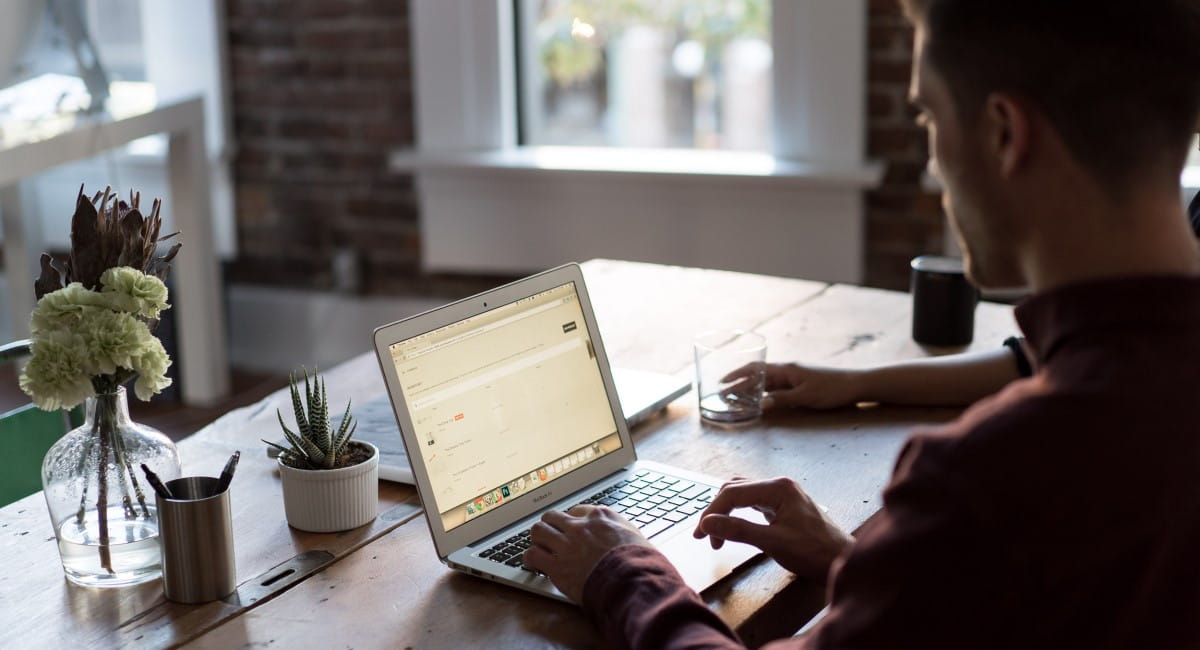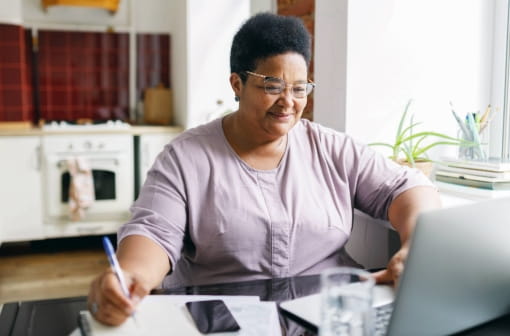“Devote 70 percent of your energy to the things you can control and 30 percent to what you can influence. That leaves nothing for the factors completely outside your scope.”—Dr Eleanor De Ath-Miller, Senior Consultant Psychologist and Clinical Neuropsychologist at Transitioning Well.
Key points
- The goals and plans we set in life have an impact on our wellbeing. It’s no wonder then that we feel uncomfortable and stressed when something unexpected – like COVID-19 – occurs.
- Preparing for the worst means we’re better equipped to deal with any issues and get back on track – but build in some flexibility, as sticking too rigidly to the plan can have a negative effect on our wellbeing.
- There are some practical tips to follow if you feel uncertain about your future, but consider seeking help from the professionals if you still feel overwhelmed.
Having a sense of purpose is proven to have a positive impact on our wellbeing—a fact we know from more than two decades worth of wellbeing research conducted by Deakin University as part of the Australian Unity Wellbeing Index.
Clearly defined goals provide a path towards a sense of purpose and security about the future, while we are often at our happiest when we are feeling optimistic and have something look forward to.
But how should we go about looking ahead when the future is uncertain? How rigid should we be in sticking to our plans in the face of changing circumstances? And what practical steps can we take to deal with uncertainty?
Here a psychologist and a financial adviser give their insights into navigating the choppy waters of an uncertain future.

Humans are wired to set goals
Most people are wired to make plans, to look ahead and to set goals. Whether we have our sights set on career advancement, starting a family, buying a house, starting a business, going on a holiday or improving our health and fitness, charting a step-by-step course is a practical way to achieve our aims.
“Humans are goal-directed beings – most of us function a lot better with a plan,” explains Dr Eleanor De Ath-Miller, Senior Consultant Psychologist and Clinical Neuropsychologist at Transitioning Well, explains. “If we have a good idea of where we’re going, we have a much better chance of getting there.”
Setting goals and the planning out how to achieve them—particularly if we’ve pinpointed those goals for the right reasons—tie closely to our overall sense of wellbeing.
“Goals have the most positive impact when we base them on our values,” says Eleanor. “If we want to accomplish those things, we need to find out what’s most meaningful to us first. Who do we really want to be?”
Risk and flexibility
When planning for the future and setting goals, it’s wise to consider the potential variables and risks – particularly those outside our control – so we have a strategy in place if things change. If we can work through the contingencies, the more likely we are to make good decisions and the less likely we are to be derailed if something upsets our ideal plan.
Gerrie Vermeulen, Financial Adviser at Australian Unity, agrees: “Weigh up the benefits compared to the potential losses or opportunity costs before setting out to reach your goals.” He goes on to say that “we all know life seldom goes exactly according to plan, but preparing for the worst means we’re better equipped to deal with those issues and get back on track”.
The most recent example in our history is, of course, the COVID-19 pandemic—a once-in-a-lifetime event that came out of left field. Few people avoided having their plans or goals disrupted – and that’s something that can be hard to navigate.
But sticking rigidly to a plan despite a changed landscape can be just as harmful to our wellbeing.
“Humans don’t tolerate uncertainty or risk very well,” explains Eleanor. “That’s why the COVID-19 situation has been so difficult. In a period of uncertainty sometimes we’re inclined to focus on a goal or a plan too strictly, because it gives us something to do.”
Instead, Eleanor recommends asking yourself whether your goal or plan is still important to you. “Some structure to your goal-setting and planning is beneficial, but refusing to be flexible can have a negative effect on both our mental state and our chances of achieving our desired outcomes.”
Control the controllables
Eleanor says people have a tendency, particularly when focusing on a long-term goal, to try control every possible permutation and bump in the road. But spending energy on things we have no control over – even just in our day-to-day life – is counterproductive, sapping our time and energy, and ultimately getting us nowhere.
“The model I use with clients is, ‘control the controllables’,” says Eleanor, going on to say that writing things down can provide clarity. “Begin with the things that are completely outside of your control. What in this situation can I do nothing about?” For example, if it’s a financial decision, this might be the global financial markets. “Then move onto the factors that you can’t control but can influence in some way, before writing down the things you can control, such as how you aim to respond to a certain situation.”
Eleanor advises people then use the following guide: devote 70 percent of your energy to the things you can control and 30 percent to what you can influence. That leaves nothing for the factors completely outside your scope.
She cites the uncertainty around COVID-19 as a perfect example of the different ways people approach their goals. “The people who cope best acknowledge how difficult it is, but focus on what they can do on a day-to-day level in their immediate environment.” For COVID-19, this often came back to some of the basics of wellbeing: eating and exercising properly, and focusing on social connections.
Gerrie has a similar approach to steer through uncertainty, particularly in his capacity as a financial adviser. Essentially, this means keeping calm, trusting in the plan and staying the course.
“I focus on facts, long-term statistics and trends in the markets,” he says. “I like to use visual fact sheets and graphs to educate my clients on what can be expected from their portfolios and the various risks involved.” When the inevitable market downturn occurs, he uses these same fact sheets and graphs to remind them that this was all accounted for in the initial plan.
“This approach provides comfort and peace of mind and helps people to refocus on the long-term goal rather than on the short-term rough waters,” explains Gerrie.

Practical steps to deal with uncertainty
Any transition in life can be unnerving, and this is true even if it’s a change that you wanted to occur, like starting a new job or having a baby.
“American entrepreneur and author of The 4-hour Week Tim Ferriss famously said, ‘most people choose to be unhappy rather than uncertain’—it’s a deeply uncomfortable state,” says Eleanor.
To help ease the discomfort, Eleanor recommends working through the following practical steps.
- Acknowledge the feeling of uncertainty and that it’s uncomfortable.
- Be aware of that feeling but don’t let it guide your decisions in the moment. We may try to alleviate our uncertainty by making a hasty, rash choice; alternatively, we may play it too safe and stay on a wrong path.
- Break down what needs to be decided now and what can wait; very few long-term decisions need to happen urgently.
- Assess whether you’re in a good position to be planning or setting long-term goals, or whether you need some space or time to rest.
- Always come back to what’s really important – it’s hard to go wrong in a decision-making process when you focus on the things that matter most to you.
- Consider what advice you would give someone you care about in the same situation. This can give you extra perspective when things are up in the air.
Getting help from the professionals
If the lack of certainty is too much for you to overcome alone, Gerrie suggests turning to the experts rather than going online, which he likens to searching for a needle in a haystack.
“You can use Google and filter through thousands of articles and spend hours reading various topics, or you can use a professional,” he reasons. “You don’t know what you don’t know. Professionals spend many years learning and building their skills. Yes, they charge a fee for their service, but often they won’t offer a service if the benefit to you doesn’t outweigh the fee they charge. Don’t be penny-wise and pound-foolish.”
Eleanor also believes professional assistance can be the best course of action.
“Psychologists and coaching psychologists are great contacts for support in making decisions, upskilling in dealing with uncertainty, and working out what's important to you, so that you're consistently moving towards it.”
But it helps to have perspective, says Eleanor, going back to her original point on values. “If you're not sure what your values are – that compass that directs you towards the life you want to live – have a look at some exercises that explore this further.”
Disclaimer: Information provided in this article is of a general nature. Australian Unity accepts no responsibility for the accuracy of any of the opinions, advice, representations or information contained in this publication. Readers should rely on their own advice and enquiries in making decisions affecting their own health, wellbeing or interest. Interviewee names and titles were accurate at the time of writing.


